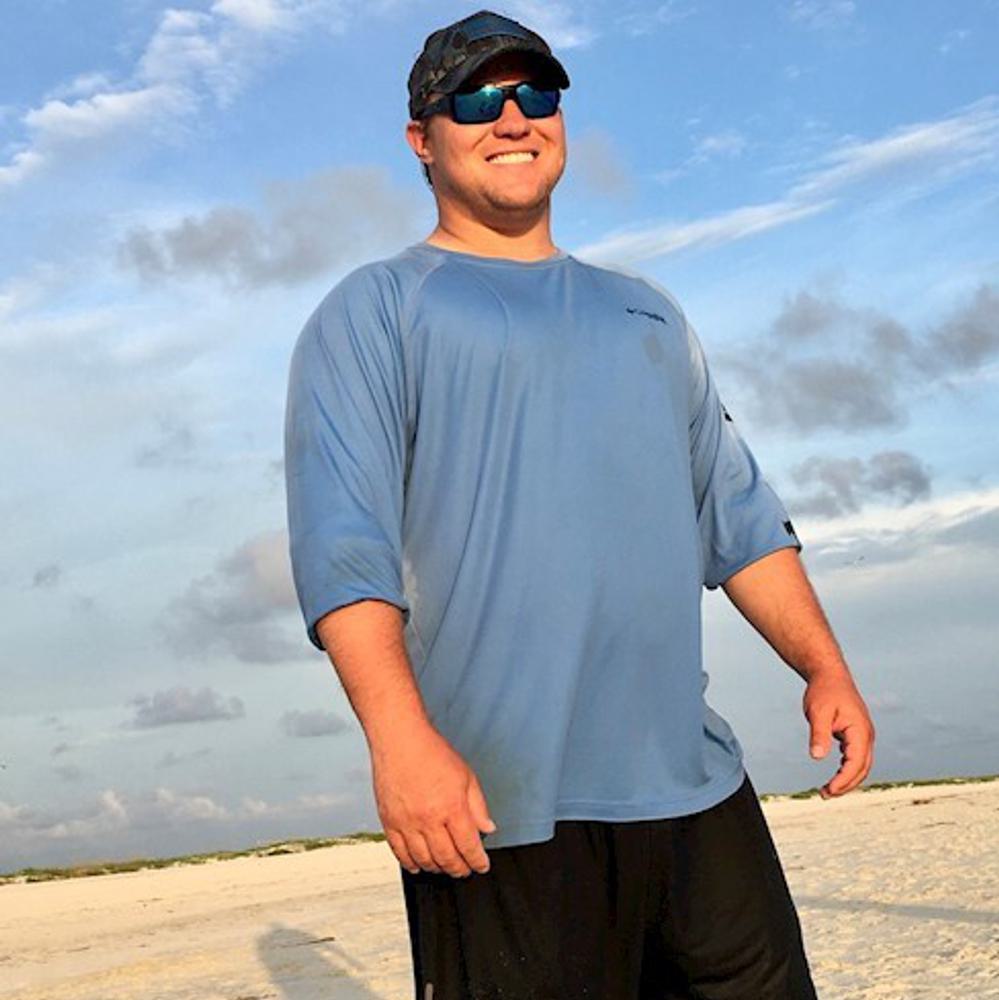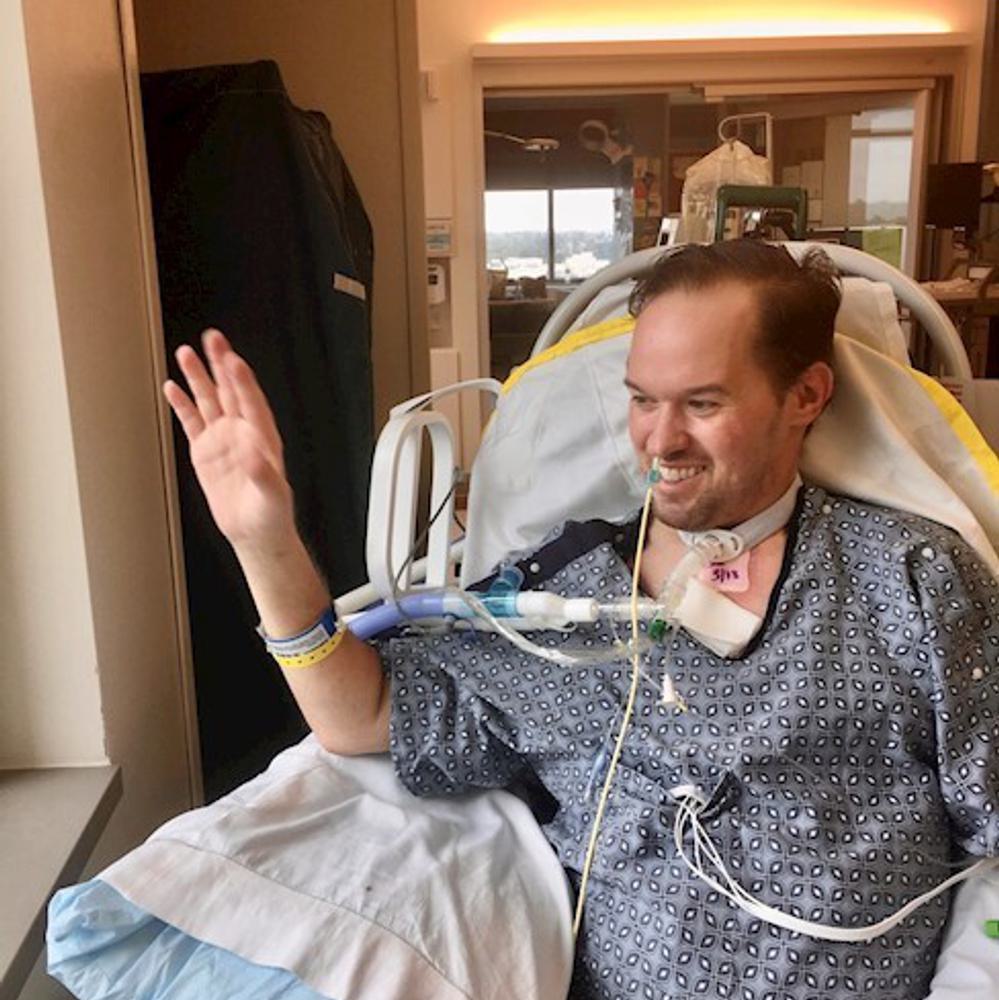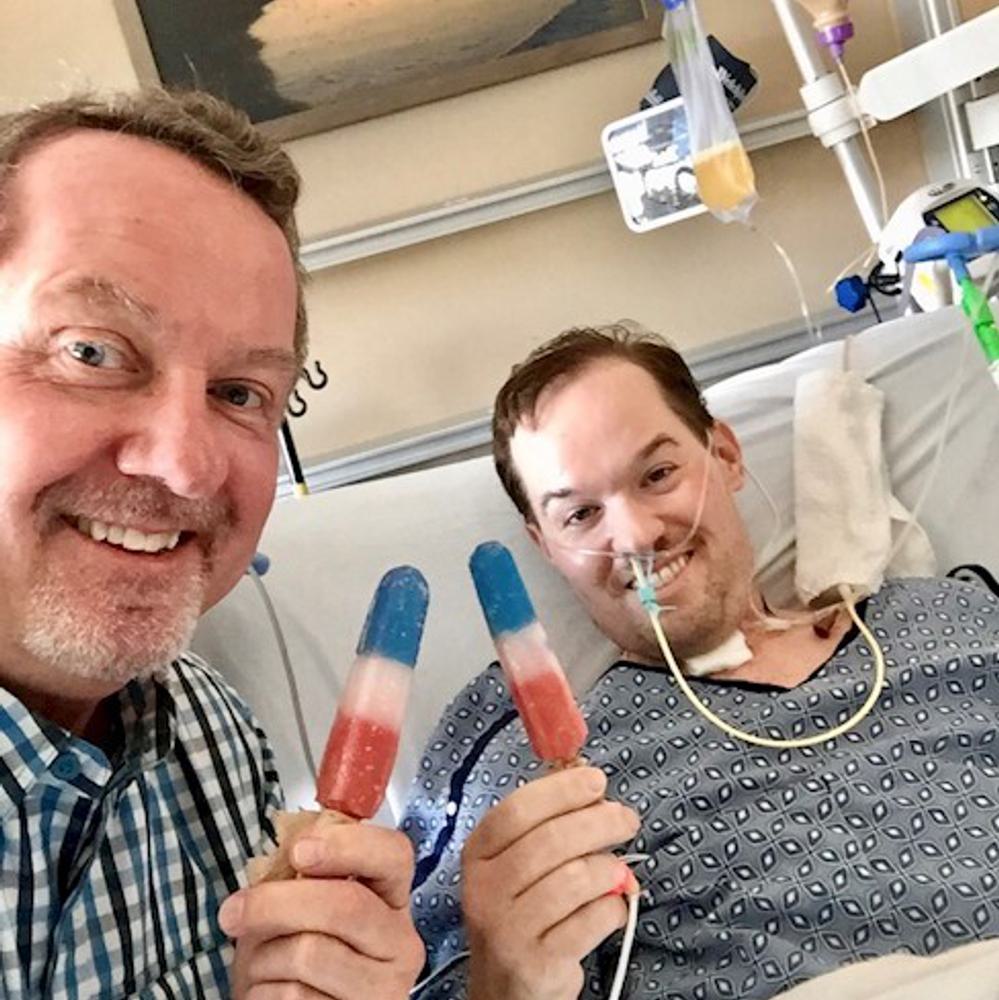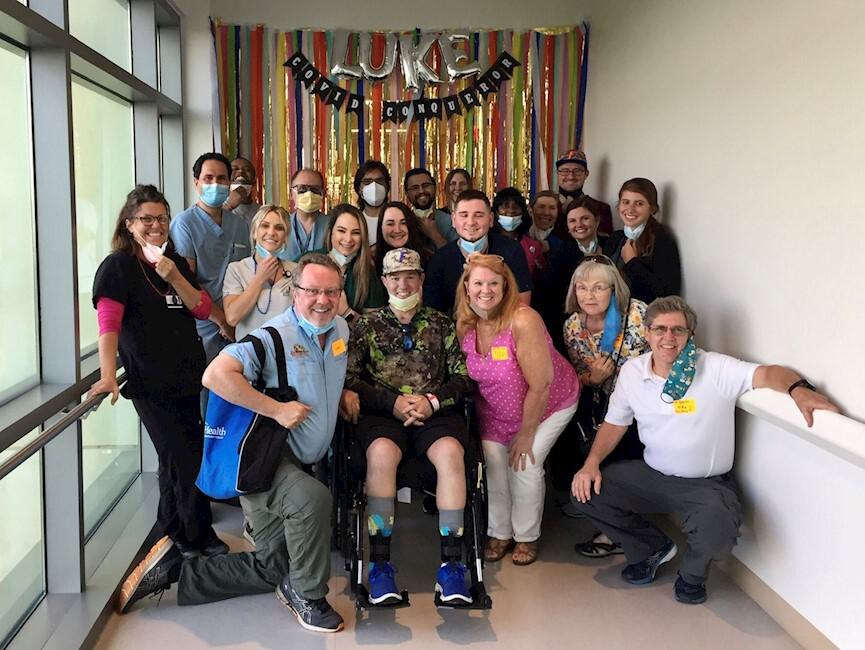By the time it is finally, thankfully, over, we will all have COVID-19 stories to tell. Stories of those who survived and should not have, those who didn’t and should have. Those still feeling the effects of the virus months and years after recovery and those who ignored what science, doctors, TV talking heads, and politicians told us to do and pushed right on through the mess with no issues. Those who took every precaution and still got infected. But we will be hard-pressed to hear a more inspiring story than that of Daphne resident Austin Luke.
See, Austin is absolutely not the type we typically think of as being susceptible to COVID-19 or any of its endless waves of variants continually popping up as the lead story on the evening news. In his mid-thirties, healthy, athletic, physically active, no “co-morbidities” (how many of us had even heard that term before early 2020?), and a sparklingly positive outlook on life, he just did not qualify.

Then, one day in December 2020, he realized he was running a fever, then started feeling punky and developed a cough. Like the rest of us, he was aware of the pandemic, so he took the test.
Positive. But nothing to worry about. Friends advised he just tough it out. Tylenol and Motrin and he would be fine. He was not at all the folks that the pandemic was so badly affecting.
But after a few days of his fever continuing to rise, and when he began to have trouble catching a good breath, he called an ambulance. The first time Austin admits being afraid was when he was lying on a gurney in a hallway at an overcrowded Thomas Hospital in Daphne, waiting for a room, listening to all the others around him moaning, begging for help, gasping for a breath of air. Physicians put him on whatever “recipe” they were generally using for treatment at the time. It did not work. He sank into a coma and almost died.
Austin’s parents, Ken and Dixie Luke, still not fully aware of just how sick their boy was, rushed down I-65 from their home in Birmingham. But none of them had any idea of what a daunting challenge lay before them. That before this hellish experience was over, there would be three different hospitals, four ambulance rides, a tracheotomy, a medical airlift, many days on a ventilator, three intubations, forty-four days in a medically induced coma, almost three months on an ECMO machine (a device that recirculates and oxygenates the patient’s blood), a series of collapsed lungs, open heart surgery, and, finally, a double lung transplant. Plus, uncountable chest tubes, IVs and catheters and various other procedures necessary to keep Austin barely alive. There would also be days when the medical folks told Ken and Dixie Luke that they needed to get themselves prepared for the worst, to be ready to plan a funeral for Austin.
From the beginning, Ken began publishing an almost daily web journal to more easily keep hundreds of friends and family updated on the latest. But from the start, he used this forum to rally people to pray to God, for healing for Austin and strength for him and Dixie. It is not surprising that the journal is full of sports metaphors. Ken played quarterback and free safety at Auburn University in the late ‘70s for coach Doug Barfield. But easily the strongest theme running through these powerful and emotional journal entries is how much he and his wife turned to their faith for comfort. And for the next 131 days, that would be the one thing that would get the Lukes through this unthinkable ordeal, facing the possible—no, almost certain—loss of their son.
Just before Christmas 2020, Austin was moved to Baptist Pensacola Hospital and placed on life support, in an induced coma. Machines kept him breathing. Because of COVID protocol, his parents were not allowed to visit. Ken began using a phrase in his journal, based on a bit of scripture from the Bible, Psalms 139. If enough people were praying for Austin, God would certainly know his name. That same verse talked of God knowing all about each of us before we are born and how He planned out the rest of our lives. Ken was certain He had a plan for Austin, too. And there was no doubt that if he survived this thing, he could be an inspiration for so many others.
Ken also wrote of a time when Austin was a small boy with an overactive imagination. He would have trouble falling asleep at night because of all the scary characters and scenarios that came to him. That’s when his dad would hold him, sing the words of the hymn “Leaning on the Everlasting Arms,” and pat him on the back to the rhythm of the song. It always worked. Now, though, he could not even enter the ICU where his boy struggled for breath, but he prayed that God would allow Austin to hear that song and its powerful message of peace and healing. And feel that hand, keeping comforting rhythm, patting the deathly-ill young man on the back.
As the New Year began, and as the Lukes kept constant watch on Austin’s blood oxygen levels, results were discouraging. There were no signs of improvement. Several times, they were certain the next message from the ICU nurses would be that he was gone. But the prayers continued. As Ken wrote, “God knows all of our names but thanks to you he really knows Austin's name!”
Still, it seemed every bit of good news would soon be offset by bad. The agony is obvious in the father’s words in the journal. But there is no hint of despair or of surrender.
In February 2021, the doctors in Pensacola told Ken and Dixie they had done all they could for their boy. They recommended he be transferred to UF Shands Hospital in Gainesville, Florida, one of the country’s top lung disease treatment centers. Once he was finally taken by air to Gainesville, they received the diagnosis that COVID had taken such a toll on his lungs that he would never be able to live without machines to help him breathe. Even that help would have limited duration. It was basically a death sentence. But there was one possibility. A double lung transplant was the best and only hope. But while UF Shands was one of the world leaders in lung transplants, they were still dependent on a donor and a compatible set of replacement lungs.
So, the wait began. Ken continued requesting prayers during this time, as Austin was still struggling to remain alive long enough to get his new lungs—already dubbed “angel wings” by the nurses because that is what donated lungs closely resemble when they are removed from their container just prior to transplantation.
The day finally came. Someone somewhere had snatched something important away from Death by donating his or her lungs and giving the gift of life to Austin Luke. All went well. After the long operation on March 12, the Lukes learned that Austin’s was officially the 1,000th lung transplant performed at UF Shands.
It was not over, of course. There would be anxious moments, pain, small setbacks, blood clots and ulcers, sickness, and plenty more healing to do. But there are also pictures of Austin’s empty hospital bed, of him up and walking. Him climbing the stadium steps at the University of Florida football stadium. Standing on a pier back in Daphne, the sun bright and warm behind him, but breathing the salt air without aid of machinery or medication. There was also plenty of physical therapy ahead, even after Austin finally went home. Today, he is almost back to normal, with only a few lingering reminders that doctors had given up on him more than once and that his body had been ravaged by a virus we still can’t seem to figure out. That his recovery from a disease that should not even have bothered him in the first place is nothing but a bona fide miracle.
So, what pulled him through? To this day, doctors cannot tell him why such an unlikely target of the virus suffered such drastic illness. Or why it took that last resort, those “angel wings,” to ultimately save his life.
Maybe it was simply Austin Luke’s powerful will to live. If you ask him, he gives strong credence to that theory. Possibly being in such good physical condition made a difference, too, especially during the long hospitalization. Austin believes that was a big factor and is already lifting weights, eating healthy, and exercising regularly. He advises everyone to stay in shape, be healthy, be better prepared to fight off illness. But still respect and take seriously COVID or any other health threat. And, by the way, he advises that we recognize our own mortality and make the most of every day we are granted.

Maybe it was his parents, family, friends, and co-workers at Rite Hite Corporation (who took up the slack and kept his job open for him for more than a year) who were pulling for him, whether he knew it or not. Perhaps, collectively, they simply willed him to survive.

But Ken and Dixie Luke—and, of course, Austin—will tell you it was all those people on their knees asking for healing, promising God that if it was part of His plan to keep this young man around, he would one day tell his story and thus become a shining example to others of God’s healing power unleashed by prayer.
They will also tell you that before it was finally over, God knew Austin Luke’s name. As Ken Luke wrote in his final journal entry, “God knew Austin’s name before he was born because he created him. But He really knows Austin now because so many people kept his name before the throne.”
Don Keith, an Alabama native, is an award-winning and best-selling author, filmmaker, journalist, and broadcaster, and a regular contributor to 1819 News. He has more than 35 books in print, fiction and non-fiction. His latest, Chuck Yeager: World War II Fighter Pilot, will be published in December 2022.
Don’s website is www.donkeith.com.
Don't miss out! Subscribe to our newsletter and get our top stories every weekday morning.










